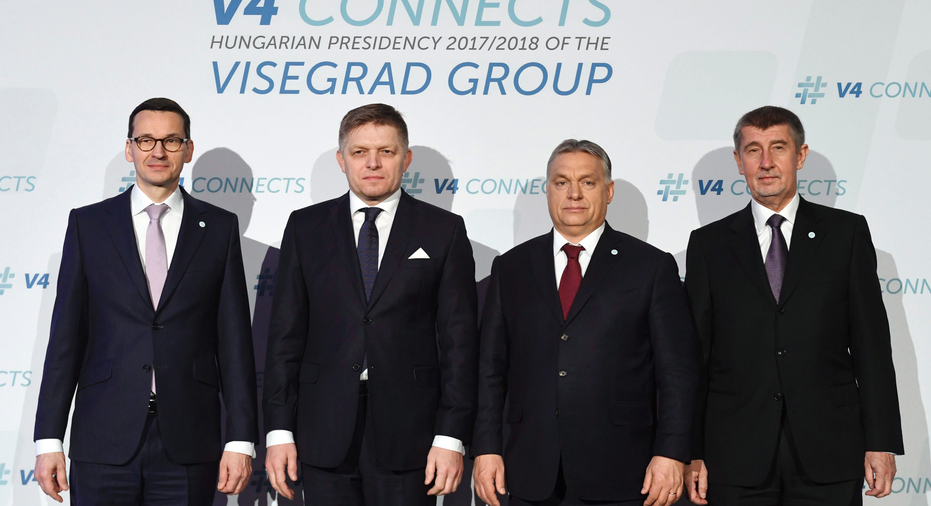Central European leaders want 'new blueprint' for continent

BUDAPEST, Hungary – The prime ministers of four Central European countries that are in the European Union reiterated their opposition to migration Friday, with Hungary's leader saying Europe needs a "new blueprint" to be successful.
Hungarian Prime Minister Viktor Orban said the countries of Central Europe were making increasingly strong contributions to the EU economy, which Orban said needs to be more competitive.
"We are not receiving or requesting aid," Orban said during a panel discussion with the other regional leaders. "We are a self-conscious community which gives to the European Union at least as much as the EU gives us."
Orban said the blueprint he envisions would return Europe to the technological forefront, include a joint defense force and the goal of a "work-based society — meaning a clause relating to total employment,"
Orban said there was agreement among the Visegrad Group, which also includes Poland, the Czech Republic and Slovakia, that it was in their interests for Europe to be strong while preserving the independence of individual countries instead of creating a "United States of Europe."
"We are pro-European politicians, and our goal is for Europe to be stronger," he said, adding: "The question is, will the European Union have enough of the good-quality leadership needed for us to achieve these aims."
The meeting also included Polish Prime Minister Mateusz Morawiecki, acting Czech Prime Minister Andrej Babis and Slovak Prime Minister Robert Fico. They also stressed the need for more north-south ties between the countries in the form of highways, high-speed rail links and oil and gas pipelines.
"We have to overcome the east-west connectivity in Europe," Morawiecki said, adding that such projects would "increase competitiveness of the entire region."
The group also advocated for the further expansion of the EU, to add countries like Montenegro, Bosnia-Herzegovina and Serbia.
Orban said Hungary was close to a deal to import natural gas from Romania, reducing the country's dependence on Russian energy supplies.
Orban said the migration crisis had made it more difficult to renew Europe. He called U.N. Secretary-General Antonio Guterres' proposals about a global agreement on migration "dangerous."
"It's not worth it for the European Union to try to reach a common position at the U.N. because we won't be partners in this," Orban said, adding that Central European nations "want to stick to our tolerant, Christian way of life."
For his part, Fico said he belonged to a group of prime ministers who "do not wish to see Muslim communities being created in our own countries, which have Christian roots."



















